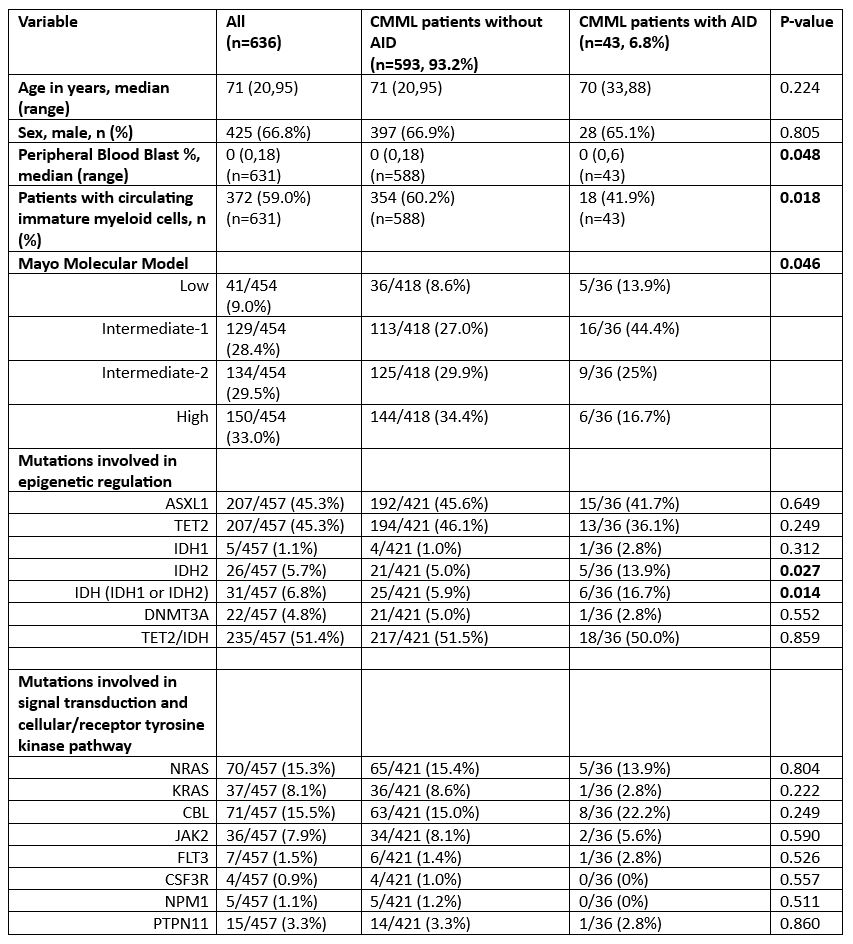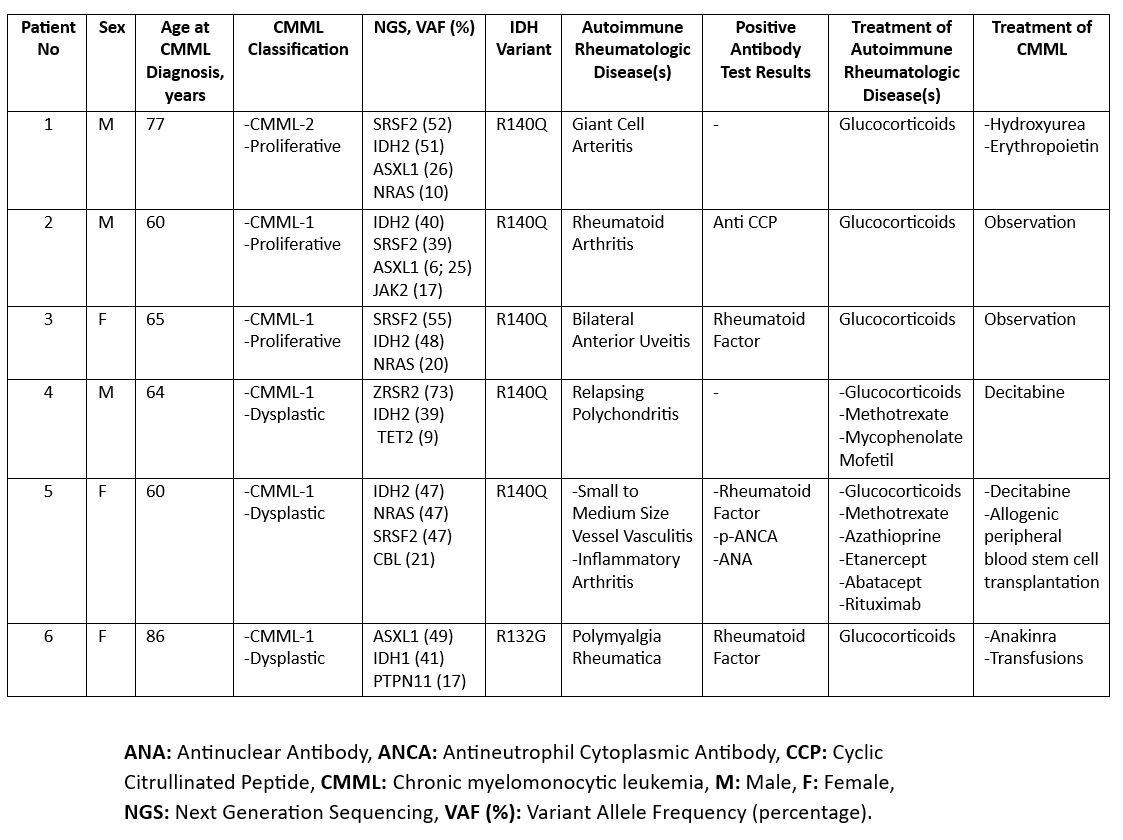Session Information
Session Type: Poster Session B
Session Time: 10:30AM-12:30PM
Background/Purpose: Somatic mutations occurring in the hematopoietic system can be associated with concomitant hematologic and inflammatory diseases. Chronic myelomonocytic leukemia (CMML) is a hematologic neoplasm occurring on a background of age-related clonal hematopoiesis and is associated with autoimmune and autoinflammatory diseases (AID- 20-30%). The aim of this study was to investigate the clinical characteristics and somatic mutation profiles of CMML patients with selected AID.
Methods: Patients with CMML evaluated at our institution between 1994 and 2023 were included in this study. Clinical features and laboratory data were abstracted from the medical records. AID (rheumatic diseases and inflammatory eye conditions) were required to be diagnosed either 5 years before, or any time after the diagnosis of CMML. Patients were followed through December 1, 2023, last follow-up, or death.
Results: We included a total of 636 patients with CMML who met 2016 World Health Organization Diagnostic Criteria; 66.8% (n = 425) were male, and the median age was 71 years (range: 20-95 years). Of these, 43 (6.8%) were diagnosed with AID either 5 years prior to the CMML diagnosis or thereafter (Table 1). The most common AID were inflammatory arthritis (14/43, 32.56%), vasculitis (13/43, 30.23%), uveitis/scleritis (9/43, 20.93%), and polymyalgia rheumatica (7/43, 16.27%). Patients with AID were more likely to have a lower-risk CMML stratification, lower peripheral blood blast percentages (p = 0.048), and lower fractions of circulating immature myeloid cells (p = 0.018) at CMML diagnosis.
Next-generation sequencing analysis was available in 457 (72%) patients with CMML. The group with AID had a higher percentage of patients with isocitrate dehydrogenase (IDH) mutations (IDH1/2, 16.7% vs. 5.9%, p = 0.014) as compared to the CMML patients without AID. There were 6 patients with IDH mutations in the former group (Table 2); 5 patients with IDH2 mutations had the R140Q variant with a median variant allele fraction (VAF) of 47% (range: 39-51%), while there was one patient with IDH1 mutation with an R132G variant, with a VAF of 41%. There was no significant difference in the distribution of the other mutations between these two groups.
Conclusion: Patients with concomitant CMML and AID had a higher percentage of IDH mutations compared to patients with CMML and no AID. IDH mutations might play a role in the pathogenesis of AID in patients with CMML.
To cite this abstract in AMA style:
Kaymakci M, Natu A, Csizmar C, Lasho T, Finke C, Mangaonkar A, Al-Kali A, Alkhateeb H, Fernandez J, Koster M, Weyand C, Patnaik M, Warrington K. Isocitrate Dehydrogenase 2 Mutations Are Associated with Autoimmune Rheumatologic Diseases in Chronic Myelomonocytic Leukemia [abstract]. Arthritis Rheumatol. 2024; 76 (suppl 9). https://acrabstracts.org/abstract/isocitrate-dehydrogenase-2-mutations-are-associated-with-autoimmune-rheumatologic-diseases-in-chronic-myelomonocytic-leukemia/. Accessed .« Back to ACR Convergence 2024
ACR Meeting Abstracts - https://acrabstracts.org/abstract/isocitrate-dehydrogenase-2-mutations-are-associated-with-autoimmune-rheumatologic-diseases-in-chronic-myelomonocytic-leukemia/


